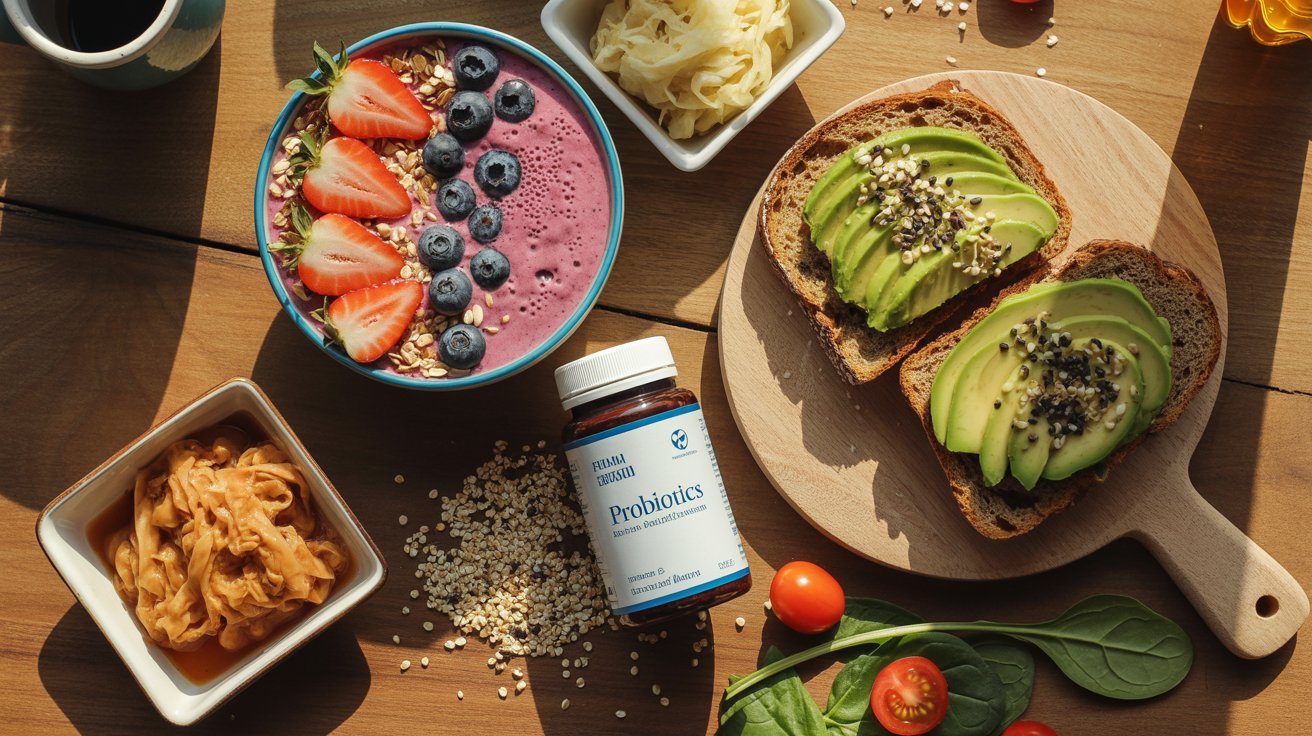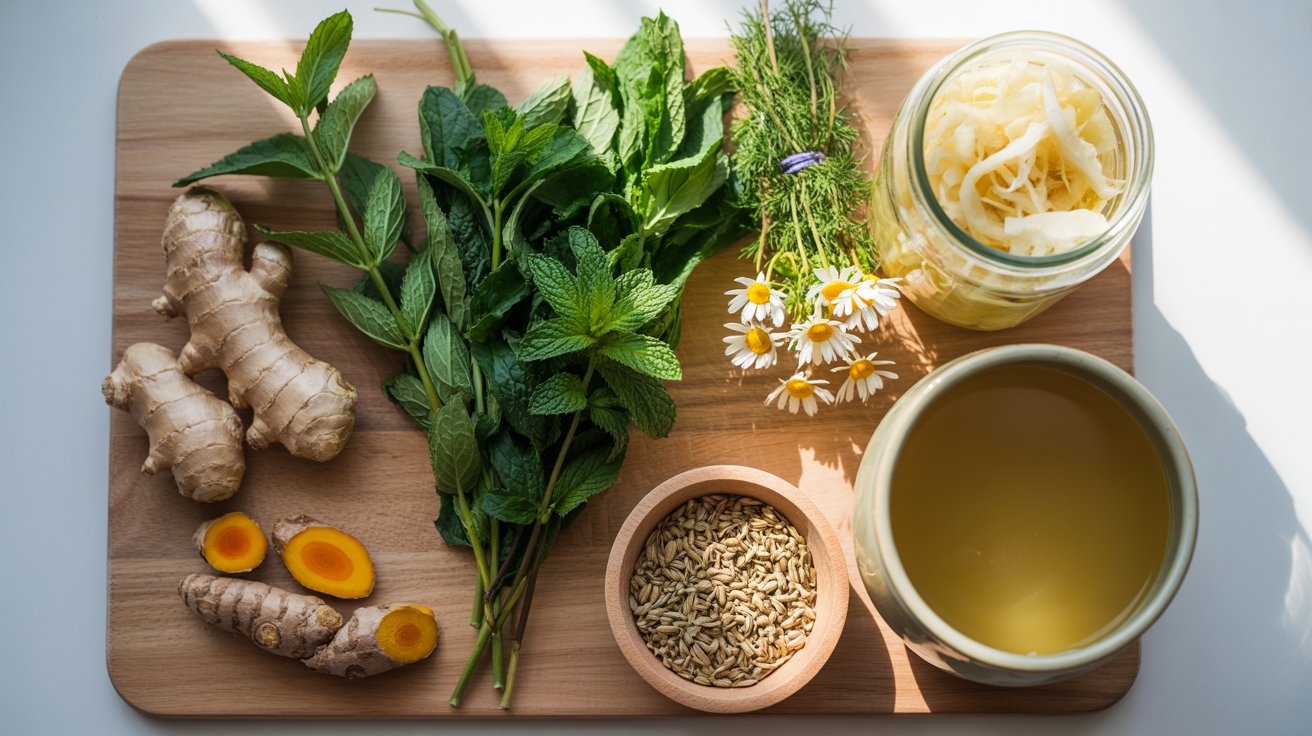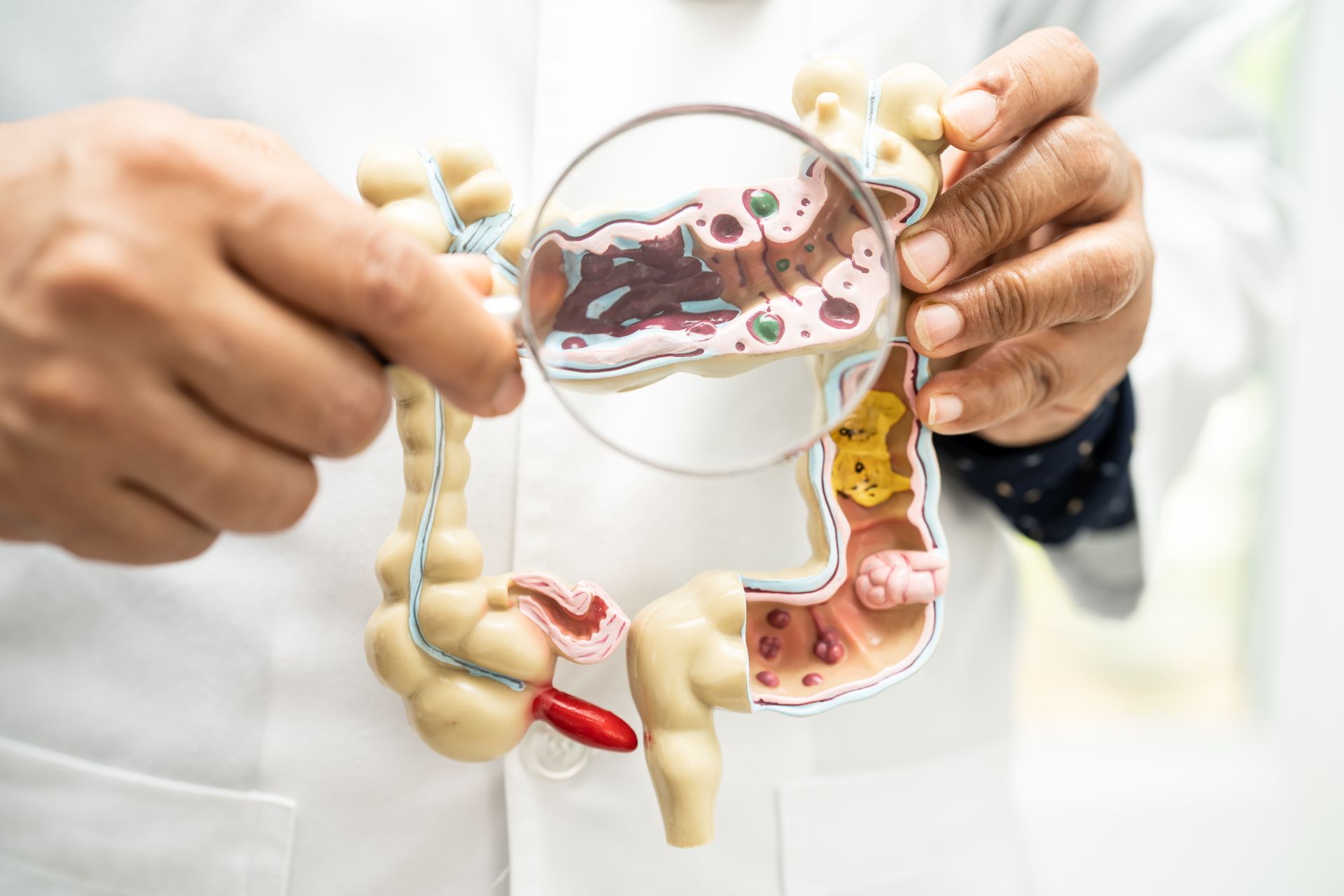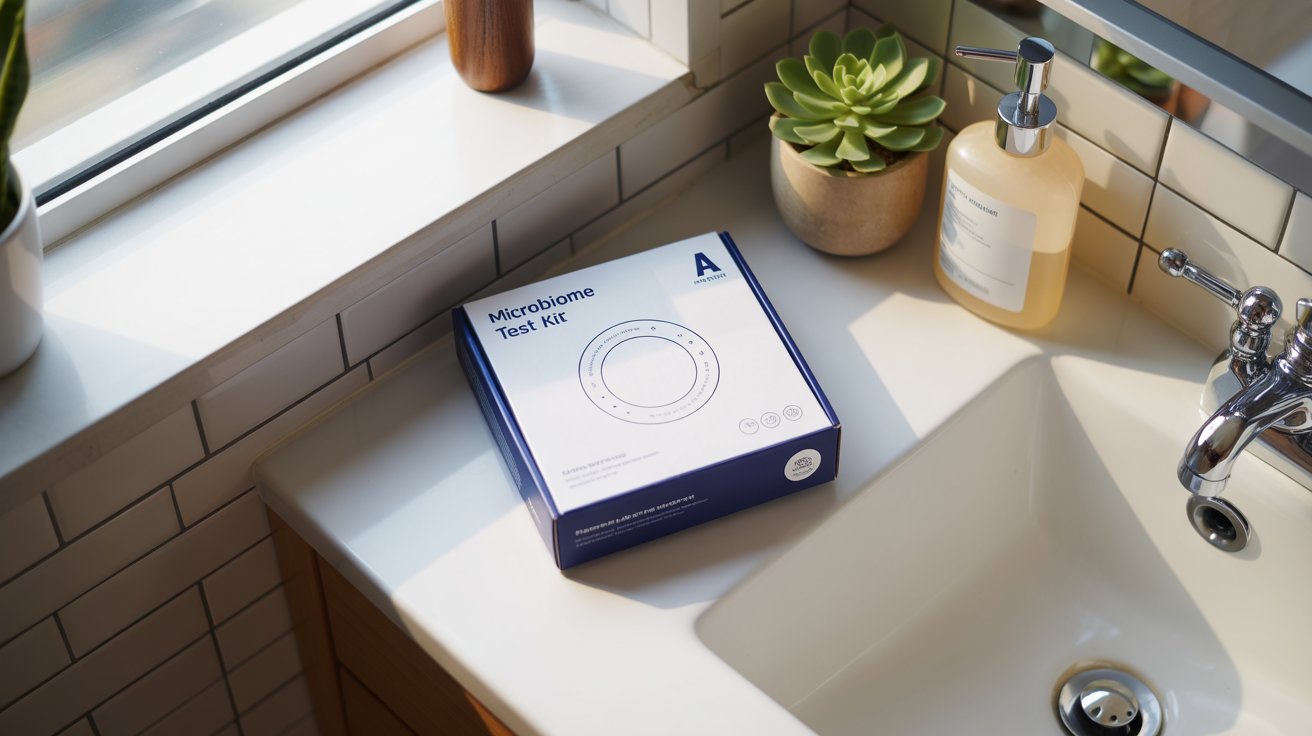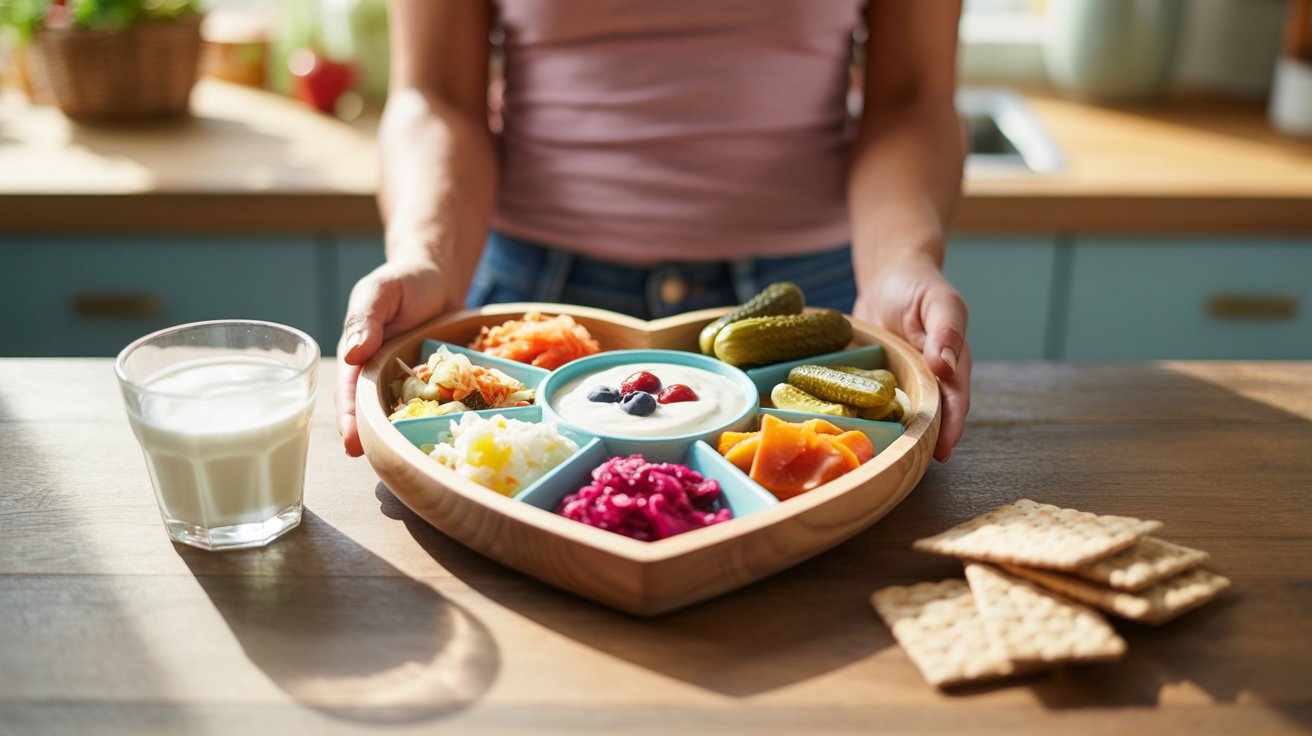Just as the fabled city of Troy was unaware of the Greeks hidden within the wooden horse, you may be oblivious to the vast and complex community-dwelling within your own body: the gut microbiome.
It’s the myriad of microorganisms in your digestive tract that not only affect your digestion but also have far-reaching influences on your overall health.
You’ve likely heard snippets about how these microscopic tenants can impact everything from your mood to your immune system. Yet, it’s not just about what they do; it’s also about how you can support them in maintaining your health.
As you consider the potential benefits of a balanced gut microbiome, including improved heart health and blood sugar control, you’ll realize the importance of understanding this inner ecosystem.
But how exactly does it exert such significant effects, and what steps can you take to optimize its function?
The answers to these questions could reshape your approach to health and wellness, and the journey to discover them is one of intriguing revelations and practical advice.
Why Is The Microbiome In Your Gut Vital for Health?
Within this ecosystem, symbiotic microbiota live harmoniously with your intestinal cells, aiding in breaking down foods, absorbing nutrients, and fending off harmful pathogens.
The balance of your gut microbiome is closely tied to your diet. Consuming a variety of foods, particularly fiber-rich and fermented foods, supports a diverse and robust microbiome. These dietary choices ensure that you’re not just nourishing yourself, but also the beneficial organisms that call your gut home.
For your immune system, the microbiome is a trusted ally. It educates immune cells, teaching them to differentiate between friend and foe, which is particularly vital in preterm infants whose immune systems are still developing.
When you consider the vastness of this microscopic world within you, it’s clear you’re never truly alone. Your health is a shared journey with your microbiota, as they work tirelessly to keep you well. Embrace the interconnectedness of your body and its inhabitants for a healthier, happier you.
How Does It Affect Your Body?
The gut microbiome exerts a profound influence on your overall health, from nutrient absorption to immune function.
Your body’s immune responses are also shaped by this complex ecosystem. The healthy bacteria in your gut interact with your host immune system, teaching it to recognize friends from foes. This means you’re better equipped to fend off pathogens that could otherwise make you ill.
However, the balance of power within your gut can shift. Detrimental microbes can sometimes gain the upper hand, especially if your diet doesn’t support the growth of beneficial ones. It’s important to nourish those friendly microbes to maintain a strong intestinal barrier, which acts like a gatekeeper to protect your body from harmful substances.
Here’s a quick look at some key relationships between your gut microbiome and your body:
| Function | Influence of Gut Microbiome |
|---|---|
| Nutrient Absorption | Enhances breakdown and uptake of vital nutrients |
| Immune System | Modulates immune responses, promotes host immune resilience |
| Pathogen Resistance | Helps defend against harmful pathogens |
| Intestinal Integrity | Strengthens the intestinal barrier to protect against external insults |
You see, by taking care of your gut microbiome, you’re actually taking care of yourself.
Do Vitamins and Minerals in The Diet Impact the Gut Microbiota?
Your dietary habits, especially the vitamins and minerals from food, play a significant role in shaping the gut microbiota.
A healthy diet loaded with vitamins and minerals from various sources is like a symphony for your gut bacteria, each nutrient hitting the right note to support a harmonious balance.
- Foods rich in complex carbohydrates such as whole grains, fruits, and vegetables feed beneficial bacteria that thrive on fiber.
- Plant-based diets often lead to a more diverse microbiome, fostering communities that can help reduce inflammation and support your immune system.
- Avoiding excessive simple carbohydrates and processed foods helps prevent the overgrowth of potentially harmful bacteria that thrive on these food components.
You’re not just eating for one – you’re feeding a whole ecosystem within you. When you choose a plate bursting with colors from various fruits and vegetables, you’re not only delighting your senses but also nurturing your microbial companions.
As you continue to learn and adapt your eating habits, you foster a sense of belonging within your body, creating a shared space where every part, including your gut microbiota, can thrive together.
How Does It Affect Your Weight
Your microbiome is pivotal in regulating your body weight, influencing how you process and store calories. The microbes residing in your gut can differ dramatically based on what you eat. Obesogenic diets, often rich in processed foods and sugars, can encourage the growth of harmful microbes that extract more energy from food, possibly leading to weight gain.
Conversely, a high-fiber diet fosters healthy microbes that may help prevent obesity. These beneficial bacteria can produce short-chain fatty acids that signal your body to store less fat. They can also affect how your body metabolizes secondary bile acids, which play a role in processing energy from food.
High-protein diets and animal-based diets can also reshape the microbiome in your gut. While they might promote the growth of certain bacteria that efficiently break down protein, the long-term effects on your weight and health require a deeper understanding.
Here’s a snapshot of how different diets might influence your gut:
| Diet Type | Microbiome Impact |
|---|---|
| Obesogenic Diets | Promotes harmful microbes; may increase energy extraction leading to weight gain |
| High-Fiber Diet | Encourages healthy microbes; may reduce fat storage |
| High-Protein/Animal-Based Diets | Alters microbiome; effects on weight vary |
How It Affects Gut Health
Beyond weight management, gut microbiota significantly influences overall gut health, including digestion, nutrient absorption, and immune function.
The bustling ecosystem within your gut is home to trillions of microorganisms, with various strains of bacteria playing pivotal roles. You’re not just sharing your body with these microscopic inhabitants; they’re your partners in maintaining a healthy gut.
- Picture the gut lining as a bustling marketplace, where epithelial cells trade nutrients and signals with passing immune cells.
- Envision strands of complex polysaccharides being deftly broken down by your gut’s microbial artisans, releasing energy that fuels your day.
- Imagine your gut as a fortress, with beneficial bacteria acting as guards providing protection against pathogens that dare to breach the walls.
Microbiome science is unraveling how a balanced microbial community helps fend off unhealthy microbes, reducing the likelihood of an inflammatory response that can lead to discomfort or illness.
Your gut’s defenses are reinforced by beneficial bacteria that communicate with immune cells, ensuring the integrity of the epithelial cell barrier.
How It May Benefit Heart Health
As you nurture your gut, you may also be bolstering the health of your heart. The vast community within you, consisting of trillions of microbes, has a profound influence on your well-being, extending beyond digestion.
You’re not just feeding yourself; you’re nourishing these microscopic allies that, in turn, may protect you from cardiovascular disease.
When you choose a meal rich in dietary fibers and shy away from ultra-processed foods, you’re doing more than you might realize. These fibers aren’t just for keeping your digestion smooth; they’re the preferred meal for your gut microbes, which ferment them into substances that can impact the risk of heart disease.
Moreover, these microbes shape the composition of bile acids, critical for fat digestion. The wrong mix can contribute to metabolic syndrome, a cluster of conditions that increase your heart disease risk. Your actions, diet, and host genetics play a part in this delicate balance.
It May Help Control Blood Sugar and Lower the Risk of Diabetes
While nurturing the microbiome in your gut can be a boon for heart health, it’s also instrumental in regulating blood sugar levels and reducing the risk of diabetes.
Every bite you take, every stressor you encounter, and even the type of delivery at your birth – whether cesarean or vaginal – can shape this microbial community.
Modifiable factors such as diet and exercise interact with environmental factors and your genetics to sculpt the host response essential to maintaining optimal blood sugar levels.
Clinical studies continue to reveal how you can harness your gut microbiome to lower your risk of disease, especially diabetes, creating a sense of belonging in the pursuit of collective health.
How It May Affect Brain Health
Delving into the complexities of the gut-brain axis, it’s clear that the microbes flourishing in your gastrointestinal tract could significantly influence your mental health.
The intimate relationship between your gut microbiome and brain health is a subject that hits close to home for all of us, as it touches on the very essence of human health.
Your gut microbes produce a variety of neurotransmitters that play a pivotal role in brain function, including serotonin and dopamine.
These chemical messengers are critical for your mood, emotions, and cognitive abilities. Here’s a snapshot of how these tiny organisms could impact different facets of your central nervous system:
| Neurotransmitters Produced | Impact on Brain Function |
|---|---|
| Serotonin | Mood regulation |
| Dopamine | Reward and pleasure |
| GABA | Reducing anxiety |
| Norepinephrine | Alertness and arousal |
| Acetylcholine | Learning and memory |
These interactions suggest that the gut microbiome may be a key player in preventing or managing neurological disorders and fostering mental health.
Any imbalances in your gut can lead to behavioral changes, possibly shedding light on the biological underpinnings of certain mental health challenges. It’s an empowering thought that nurturing your gut could be a step toward safeguarding your brain health and overall well-being.
How Can You Improve Your Microbiome?
A balanced, diverse diet not only nourishes you but also feeds the friendly bacteria in your gut, fostering a sense of inner harmony.
Imagine your gut as a garden that thrives with variety:
- Lush leafy greens and colorful fruits and vegetables lay the foundation with essential dietary fiber.
- To maintain balance, fermented foods like yogurt and kimchi introduce probiotics, the garden’s helpers.
- Prebiotic-rich choices such as garlic, onions, and bananas act as the fertilizer, nourishing your microbial allies.
Beyond diet, be cautious with antibiotics, which can disrupt your microbial community. Think of them as a last resort – when necessary, they’re life-saving, but overuse can harm your gut flora.
Also, regular exercise not only strengthens your body but can also enrich your microbiome, creating a robust and welcoming environment for beneficial bacteria.
Nurturing Your Gut Microbiome For Improved Health
In nurturing your gut microbiome, you’re not just feeding trillions of tiny guests; you’re bolstering your heart, brain, and blood sugar control.
Neglect it, and you may invite disease; cherish it, and you could unlock vibrant health.
Simple choices—more fiber, less sugar, varied plants—can have profound effects.
So, take charge: your microbiome’s balance is in your hands and with it, a significant piece of your well-being.
Choose wisely, and live fully.
Frequently Asked Questions
How Does the Gut Microbiome Interact With Medications, Such as Antibiotics or Antidepressants?
You’ll find that medications like antibiotics can disrupt your gut bacteria balance, while antidepressants may interact with these microbes in ways we’re still exploring.
Are There Any Specific Gut Microbiome Characteristics That Can Be Used to Predict or Diagnose Diseases Beyond the Ones Commonly Associated With Gut Health?
Yes, certain gut microbiome traits can predict or diagnose various diseases, not just those tied to digestive health.
Can Changes in the Gut Microbiome Lead to Food Intolerances or Allergies, and if So, How?
Yes, changes can indeed spark new food intolerances or allergies.
How Does the Gut Microbiome of Infants Develop, and What Factors Influence Its Composition During the First Year of Life?
Your baby’s gut microbiome develops from birth and is influenced by delivery mode, diet—breastfeeding or formula—and antibiotic use. Each factor uniquely shapes the microbial community, impacting your little one’s health early on.
Is There a Connection Between the Gut Microbiome and Aging, and Can Modifications to the Microbiome Impact the Aging Process or Longevity?
Yes, you’re part of a community where 70% of people believe gut health is key to longevity. Modifying your microbiome might slow aging and boost health, making you feel more connected and vibrant.

